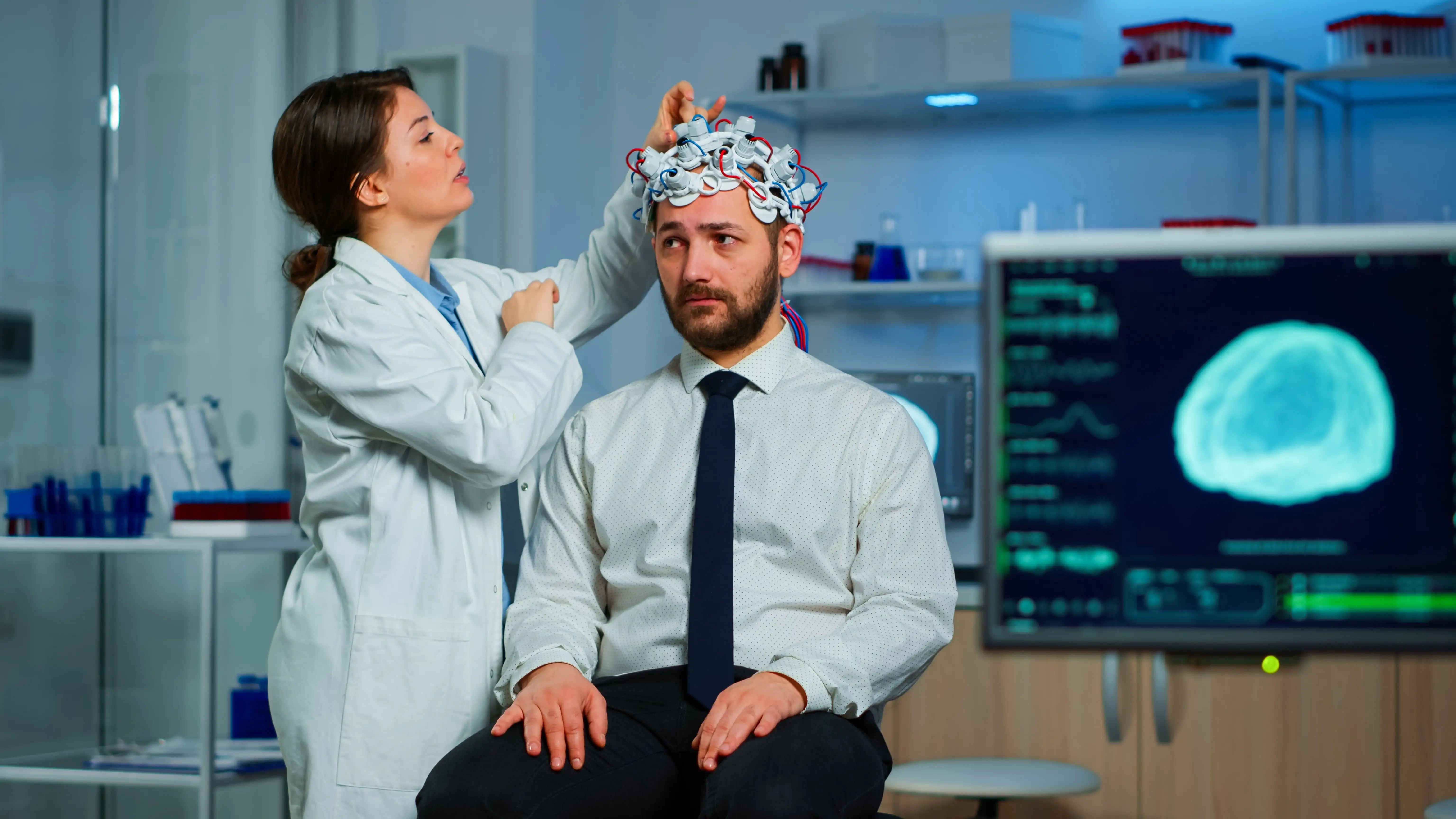Epilepsy is a neurological disorder that causes seizures due to an electrical disruption in the brain.
During a seizure, a person experiences uncontrollable body movements such as jerking arms and legs, stiffness, loss of consciousness, or altered consciousness and sensations.

Typically, the brain generates tiny, continuous, and steady electrical impulses carried by the nerve cells or neurons to the body. In an epileptic seizure, the brain’s out-of-rhythm electrical signals or bursts of uncoordinated electrical activity lead to sudden changes in body behavior and consciousness. It’s akin to an electrical circuit tripping and causing an outage.
Epilepsy is the name of the disorder that leads to seizures. In other words, epilepsy is the condition, and a seizure is its result.
The symptoms of epileptic seizures vary. Some people may exhibit signs like staring into space or being unresponsive, while others may show uncontrollable spasms and fall unconscious. There are different types of epileptic seizures, each with its symptoms (see below for types of epileptic seizures)
In general, the signs and symptoms of a person having an epileptic seizure or a fit include the following:
It is not known what exactly causes the nerve cells in the brain to get damaged and trigger epileptic seizures, but the following factors play a significant role:
People predisposed to having epileptic fits may be more susceptible due to the following:
Seizures are mainly classified into three kinds:
Focal seizures: These are caused by different areas in only one side of the brain. The signs and symptoms include jerking, the lip of rigid muscles, spasms, repeated motions such as chewing or lip-smacking, changes in sensation, emotions (sudden joy or fear), and cognition, and changes in autonomic body functions such as feeling hot or cold, increased heartbeat, etc., and with or without loss of consciousness. Temporary vision loss and hallucinations may also occur.
Treatments to control seizures depend on the type of epilepsy, seizure cause and origin site in the brain.
Treatments include:
Our highly experienced neurologists and epilepsy doctors use the most advanced methods to diagnose, evaluate and treat people with epilepsy with utmost care.
We know every case is different, and you deserve a 100% personalized treatment plan and guidance to control your symptoms and restore your confidence. Our neurologists keep abreast of the emerging research in epilepsy and neurological breakthroughs to provide you with the most advanced care.
Our expertise, state-of-the-art facilities, and multi-disciplinary and integrative treatment approach ensure you get the most effective treatment program to help you get back to your routine quickly and safely.